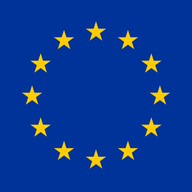
Your EU Regulation Update: October 2019 Edition
• 6 min read
This is the third in an ongoing series in which we give a brief overview of the most pertinent digital policies currently being proposed, debated and implemented in the European Union.

Articles
Likes on articles
Suzanne Taylor is a Public Policy & Internet Governance Consultant. In her work with the RIPE NCC, she has engaged with a broad range of Internet stakeholders including the RIPE NCC membership, governments, law enforcement and intergovernmental organisations. From 2012 to 2016, she worked in communications at the RIPE NCC and has previously worked as a journalist and in media relations and science communications.

• 6 min read
This is the third in an ongoing series in which we give a brief overview of the most pertinent digital policies currently being proposed, debated and implemented in the European Union.
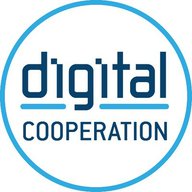
• 3 min read
In July 2018, the UN Secretary-General convened a High-level Panel on Digital Cooperation, "to advance proposals to strengthen cooperation in the digital space among governments, the private sector, civil society, international organizations, academia, the technical community and other relevant sta…
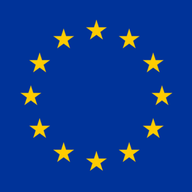
• 8 min read
In recent years, there’s been a trend towards increased EU regulation with the potential to impact more actors across the Internet landscape. This is the second in an ongoing series in which we give a brief overview of the most pertinent policies currently being proposed, debated and implemented in…
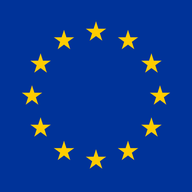
• 7 min read
In recent years, there’s been a trend towards increased EU regulation with the potential to impact more actors across the Internet landscape. Here, we give a brief overview of the most pertinent policies currently being proposed, debated and implemented in the European Union.

• 7 min read
The RIPE NCC is hosting a hackathon focused on developing tools for Internet Exchange Points. Come participate!
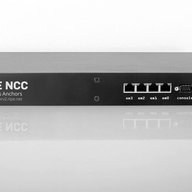
• 2 min read
Until now, native IPv4 and IPv6 has been one of the conditions of hosting a RIPE Atlas anchor. However, we realise that IPv6 simply isn't available in some would-be anchor hosts' ASNs. As a result, we've decided to support IPv4-only anchors.

• 3 min read
We've updated the RIPE Atlas APIs - and there's a comprehensive new manual to explain how to use them. As a result, the current (version 1) APIs are still available for now, but will be deprecated by the end of the year.
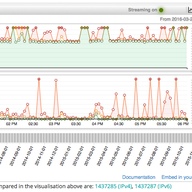
• 4 min read
In the past few months, we've added some new features and functionality to RIPE Atlas, including making the DNSMON code available on GitHub for personal use, displaying IPv4 vs IPv6 comparisons in LatencyMON, new credit sharing options, and new limits on probes per measurement and results per day.…

• 5 min read
The RIPE Atlas Interface Hackathon is an opportunity to work together with RIPE Atlas developers and other enthusiastic coders and hackers. The hackathon will take place from 21-22 May in Copenhagen ahead of the RIPE 72 Meeting. Find out how you can take part!
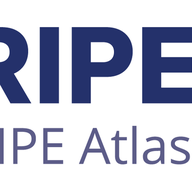
• 5 min read
RIPE Atlas has been in operation for more than five years now, and its network of probes and users has grown tremendously in that time. We’ve also added anchors, sponsors and ambassadors to the system, developed a huge array of new tools, visualisations and features, and RIPE Atlas data is now bein…
“Dear Suzanne, Congratulation for this country report. We would like to kindly contact you (or the technical team) for obtaining some information about RIPE databases, and how some of the information in the Germany report could be obtained using your APIs. Could it be possible?”
Hi Alvaro, thanks! The Germany Country Report was a special project that required a lot of manual digging through our data, so a lot of the data isn't easily accessible via our APIs, but I can put you in touch with the data analysts if you have specific questions. You can get in touch at labs@ripe.net
“Great work, thanks! Could you please have a look on Austria and Switzerland next?”
Thanks for your feedback, Dominik, and we're glad you found the report interesting! We're currently looking into which countries (or topics) we'll focus on next, so stay tuned.
Hi Andreas, Thanks for your interest in the report. The left side of the transfers graphic indeed represents the transfer of IPv4 addresses from those countries into Germany, and the right side represents IPv4 addresses that were transferred from Germany to other countries. So even though transfers (totalling 395,520 addresses) were made from the US to Germany, other transfers (totalling 23,552 addresses) were also made from Germany to the US. Transfers within Germany (the thick yellow block at the top of the graphic) represent all the transfers that were made between two different Germany entities. So even though they count as transfers, the addresses remain in the country. The EU designation is indeed a bit confusing. Mapping IP addresses to countries is tricky. For this graphic, we used the public delegation records. This isn’t perfect, as the country codes do not necessarily indicate where a resource is used, but it's the best we have for statistical purposes. For various reasons, some resources are listed as belonging to the EU rather than a specific country - for example, if they belong to a network that operates internationally. I hope that answers your questions, but please let me know if you'd like more information! Best regards, Suzanne Taylor
“Suzanne, We had IPv6 mints in Budapest. May we hope for blockchain chocolates at a future RIPE meeting? :--)”
You'll have to come to RIPE 75 to find out ;)
Showing 4 comment(s)